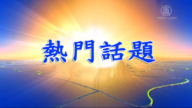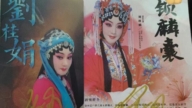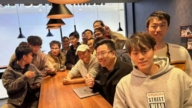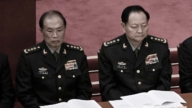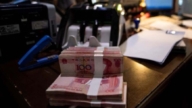【新唐人2012年2月7日讯】中共总理温家宝日前在广东农村考察时表示,要搞好村民自治和村委会村民直选。此前2月1号,广东汕尾的的乌坎村举行了村民代表的选举,受到海内外高度关注,但也引起了中共保守派反弹。温家宝这次讲话被外界解读,是力挺广东省委书记汪洋树立乌坎选举样板。
温家宝在陪同德国总理默克尔访问广东之后,2月4号来到广州市白云区江高镇水沥村与农民座谈,温家宝说,依靠村民自治搞好农村社会管理,这是唯一正确的道路。
《新华社》引述温家宝的话说:现在普遍存在的问题是什么呢?是乱占农民耕地,由此引发群体性事件。问题的根源在于,土地作为农民的财产,这个权利没有得到应有保障。
山东法律学者牟传珩表示,中国农村的土地名义上是集体所有制,但在法律上却是虚拟空泛的,不能够落实到每一个农民的实体上。
山东法律学者牟传珩:“中国现在最主要的问题是土地制度的问题,也就是土地私有化这个问题不得到解决的话,那么,土地永远被基层权力者以集体所有的名义,来剥夺农民的利益,这个不可避免的。”
温家宝在座谈中表示,村民自治是《村民委员会组织法》规定的。做好村委会直选,最基本的是要有严格的法律法规,同时要有公开、公正和透明的程序。
中国首位自荐当选人大代表的姚立法表示,根据了解的情况,全国70多万个村的村委会选举几乎都是不合法的。
姚立法:“解决中国农民的选举问题从根本上来讲要修改法律,中国关于村委会换届选举法律《村民委员会组织法》是典型的一个恶法,比清朝末年制定的法律、比民国政府制定的法律都要反动,它从法律上本身就没有保障农民的选举权和被选举权。”
去年,广东乌坎村数千村民举行示威,抗议掌权40年的村委会主任薛昌私自倒卖了660亩集体土地,以及操纵村委会选举。村民们赶走村委干部、实行自治,结果整个村庄被武警部队封锁。
经过持续几个月的抗议,最终当局让步,乌坎村民获准今年3月1号以一人一票选村委,并于2月1号投票选出了11人组成的选举委员会。
西方媒体认为乌坎选举是中共执政以来人民第一次自由直选,为中国民主进程“树立了楷模”。英国《金融时报》评论说,“这场极不寻常的中国民主试验的成败,可能对他的政治抱负产生重大影响。”
乌坎村选举引起网民热烈议论,而中共保守派担心,乌坎可能引发全国其他地区效仿。《环球时报》2月3号发表题为《外媒拔高乌坎选举很蹊跷》的评论。
《华尔街日报》指出,温家宝4号的讲话似乎是支持汪洋的一个信号。汪洋在处理乌坎事件上,一反中共强力镇压的做法。
前《陕西省电视台》记者马晓明表示,有些人担心乌坎选举是假民主,不过,如果真是骗局,民众还会起来反抗的。
广东省委书记汪洋上个月表示,他希望乌坎为“改进全广东的村级治理”提供一个样板。温家宝2月4号重提邓小平南巡讲话:“不改革开放只能是死路一条”。外界分析指出,汪洋推出的乌坎模式牵动中共党内高层的权力斗争。
新唐人记者、常春、李元翰、孙宁采访报导。
Wen Jiabao’s Rural Election Talks Back up Wang Yang
The Chinese Communist Party (CCP)’s Premier Wen Jiabao
gave a speech while inspecting rural areas of Guangdong
Wen spoke on the villagers’ autonomy
and holding the villager committee elections well.
On February 1st, Wukan village in Shanwei, Guangdong,
held an election of villager representatives.
The election drew high attentions in China and at overseas,
provoking a rebound from the CCP’s conservatives.
Wen ‘s latest speech was interpreted as firmly supporting
the CCP Secretary of Guangdong Province, Wang Yang.
Wang was deemed to set up a Wukan election model.
After accompanying Chancellor Angela Merkel’s visit to
Guangdong, Wen Jiabao held talks with local farmers.
On February 4, Wen visited Jianggao Town in Guangzhou.
In his talks with local farmers, Wen affirmed, villager’s
autonomy is the only right path for good rural management.
CCP official media Xinhua News Agency quoted Wen:
“What’s the commonly existing problem?
The arbitrary occupation of farmlands and
the consequent mass protests.
The core of the issue is land rights. The land belongs to
farmers, their right to own land should be properly protected.”
Shandong-based legal scholar, Mu Chuanheng, says
nominally, China’s rural lands are of collective ownership.
Yet legally, it isvague. Ownership cannot really
go to each individual farmer.
Mu Chuanheng (legal scholar, Shandong):
“Now China’s main problem is its land system.
That is, if the land privatization issue cannot be resolved,
the land will always be utilized by grassroots officials.
In the name of collective ownership, the deprivation of
farmers’ interests over land will be inevitable."
Wen Jiabao says, the autonomy of villagers is specified in
the Organic Law of the Villagers Committees of the PRC.
A good, direct villager committee election is based on strict
laws and regulations, and an open, fair, transparent process.
The first self-nominated deputy to the people’s congress,
Yao Lifa, discloses more related information.
According to Yao Lifa, almost all villager committee elections
over 70,000 plus villages across China are illegal.
Yao Lifa: “The fundamental way out in resolving
the Chinese farmers’ election issue is to amend the laws.
Organic Law of the Villagers Committees of the PRC
is a typical evil law.
It is worse than the laws enacted in the Qing dynasty
and by the Republic of China.
It doesn’t protect farmers’ right to vote or stand for election."
In the 2011 Wukan protests, thousands of villagers accused
a villager committee director of privately reselling lands.
Over 40 years, the head traded 660 acres of collective lands
secretly and manipulated villager committee elections.
Wukan villagers chased out CCP village committee cadres,
establishing self autonomy.
The whole village was thus besieged by armed police.
The CCP local authorities finally yielded
upon Wukan villagers’ months of protests.
The villagers were granted a one man—one vote election
for the villager committee, to be held on March 1.
An 11-member Electoral Commission was elected on Feb.1.
Western media reviewed the Wukan village election as
the first free election since the CCP’s rule in China.
The West viewed Wukan as “setting an example"
for China’s democratic process.
UK’s Financial Times commented, “The success or failure of
this very unusual experiment in Chinese democracycould
have a major effect on Wang Yang’s political ambitions."
The Wukan village election aroused heated discussions
among Chinese netizens.
The CCP’s conservative forces had worries that Wukan may
inspire other regions in China to copy their example.
Feb. 3—CCP mouthpiece, Global Times, issued an article:
“Foreign media overstating the Wukan elections is very odd”.
The Wall Street Journal said Wen Jiabao’s speech on Feb. 4
appears to support Wang Yang.
The way Wang tackled the Wukan protests is in contrast to
the CCP’s usual technique of brutal repression.
Former Shanxi TV reporter, Ma Xiaoming, says some people
worry that the Wukan elections is a sham democracy.
Ma says if it is found to be a scam, the people would rise up.
This January Wang Yang said he hoped Wukan set a model
for “improving Guangdong’s village-level governance.”
Wen Jiabao repeated Deng Xiaoping’s southern tour speech
Saying, without reform and opening, a dead end will result.
Analysts note that Wang Yang’s Wukan mode
affected high-level power struggle inside the CCP.
NTD reporters Chang Chun, Li Yuanhan and Sun Ning


